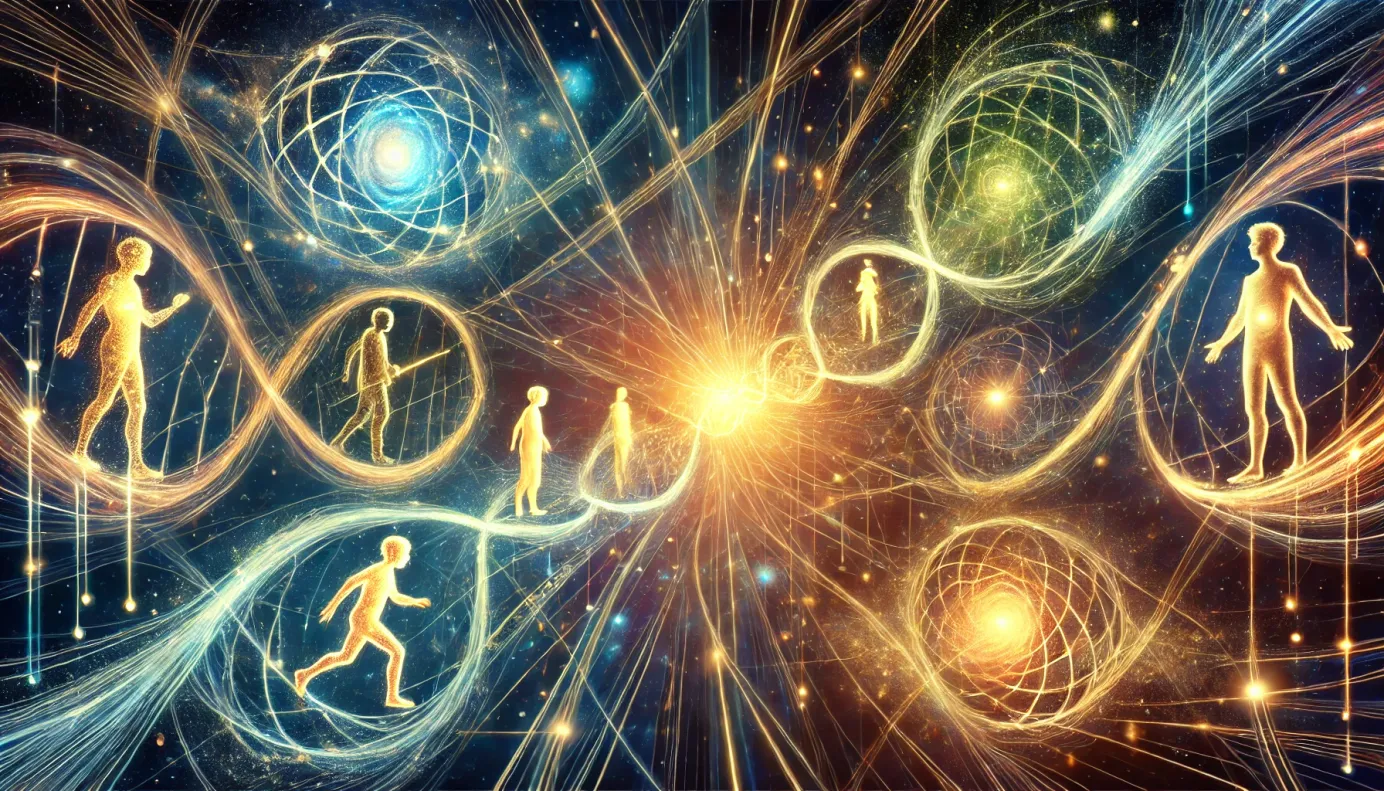
The Multiverse in Real Time: The Power of Embracing Our Multiple Versions
Embrace life's multiverse and multiple identities to build a resilient self. Avoid singular identity crises by valuing all aspects of who you are. Focus on personal growth processes over comparison to others, and recognize success as a journey shaped by continuous improvement.
Life is not a straight line. It is not a unidirectional progression where we leave behind what we were to become something new. In reality, we live in a multiverse in real time, coexisting with our multiple past, present, and future versions. Every decision, every change, every success, and every failure form part of an interconnected web of possibilities that allows us to be more than one thing at a time.
From a philosophical perspective, thinkers like Nietzsche spoke to us about eternal recurrence, the idea that events may repeat in cycles—not as a condemnation but as an opportunity for growth. Saint Augustine taught us that the present has dimensions: the present of the past (our memories and lessons), the present of the present (what we do today), and the present of the future (our dreams and aspirations). Kant, for his part, explained that time is a construct of our perception, meaning we have the power to change our reality through the way we interpret and act upon it.
If we accept that time is not an impenetrable barrier but rather a way of experiencing our evolution, then we can give ourselves permission to be many things at once. We are not just entrepreneurs or employees, parents or children, leaders or learners. We are all of that and more, and each role we play provides us with tools to achieve our personal and professional goals.
The Vulnerability of a Singular Identity

Throughout life, many people identify exclusively with a single label. An entrepreneur who sees himself solely as the leader of his company may feel lost if his business fails. An athlete who defines himself only by his sports success may face an identity crisis if an injury prevents him from competing. A mother who bases her entire being on raising her children may feel empty when they grow up and become independent.
This limited perspective is what makes us vulnerable. By expanding our self-definition and recognizing the multiplicity of our capacities and facets, we build a more resilient identity. When we stop seeing ourselves as one-dimensional beings and accept that we are part of a continuum of versions of ourselves, we discover that success is not a fixed destination but a dynamic process of learning and reinvention.
A clear example of this identity crisis is that experienced by quarterback Aaron Rodgers. Throughout his career, he has been a fierce competitor on the field, a charismatic leader who motivates his team. However, off the field, he is an introspective and reserved person. After winning Super Bowl XLV in 2011 and failing to do so again, he reached a point where he asked himself, "Who am I when I am no longer the champion?" And even more so, when he thought about retirement, the question became deeper: "Who am I when I am no longer a player, when I am no one?" As he said in the documentary Enigma (Netflix, 2024):
"Life truly exists in millions of small moments. So, can we be present to not miss out on the moments along the way that actually make the journey worthwhile?"
This dilemma reflects what many people experience when they lose the role that has defined them for years. The key to overcoming this lies in integrating all our facets and recognizing that our value does not stem solely from a title or a specific achievement.
From a psychological perspective, Ellen (2023) suggests an alternative view of the life cycle, where the path we traverse from birth to death consists of a series of goal-directed mini-trajectories, relatively independent of one another. In this model, the past has less overall influence on behavior, and within any of these separate trajectories, the mind may play a more powerful role in shaping development. This perspective reinforces the idea that success and personal identity are not rigidly determined by past experiences nor linear but are malleable and can be redefined throughout life.
The Path to Success: Focusing on Process, Not Comparison
Envy or insecurity often arise when we compare our present with the visible success of others without considering the process that brought them there. We do not see the hours of study behind a professor who now masters multiple languages, the failures of an entrepreneur before achieving success, or the sacrifices of an athlete before reaching the top. This short-sightedness leads us to underestimate our own potential and disconnect from the reality of our growth.
If instead of focusing on the final results of others, we concentrate on their processes, we will understand that success is not an exclusive goal for a few but the result of perseverance and continuous improvement. Each version of ourselves has something valuable to contribute along the way, and by recognizing it, we empower ourselves to evolve intentionally. As Ellen (2023) notes:
"When we are mindful, we see all sorts of choices and generate new endpoints. Mindful involvement in each episode of development makes us freer to map our own course."
Building a Multiverse of Possibilities

To live in harmony with our multiple versions, we can adopt four key principles:
Identity Reframing: We are not just one thing. Accepting that we have multiple facets allows us to adapt better to changes and build a more fulfilling life.
Process Awareness: Instead of focusing solely on results, we should value the steps that lead us to growth and learning.
Temporal Flexibility: The past does not define us, but it teaches us. The future is not written, but we can influence it with our present actions.
Mindfulness and Openness to Uncertainty: Mindfulness is not a practice but a way of being. As Ellen (2023) explains, "Uncertainty is the rule, not the exception. When you know you don’t know, then you naturally tune in. When you don’t know, you pay attention. When you pay attention, you have choices that otherwise you're blind to."
When we understand that we live in a multiverse in real-time, we realize that each version of ourselves has something to contribute to our journey. As Bridget Jones expresses in Bridget Jones: Mad About Him (2025):
"But perhaps it's more that suddenly you see you can live at the same time as all the things you've lost, and that you can be happy even without them."
We do not leave behind what we were; we integrate it, transform it, and use it to propel ourselves toward what we want to be. In the end, success is not a final destination but a dance between our infinite possibilities.
Conclusion
Accepting the multiplicity of our identities is a powerful tool for navigating the inevitable changes in life. We must not fear transformation or cling to a single role that defines us. As in the case of Aaron Rodgers and so many others, our true strength lies in our ability to adapt, reinvent ourselves, and find meaning beyond a single facet of our identity.
References:
Ellen, D. (2024). Mindfulness (25th anniversary edition) (A Merloyd Lawrence Book). Balance; Special Edition
Nietzsche, F. (1883). Thus Spoke Zarathustra.
Saint Augustine. (397). Confessions.
Kant, I. (1781). Critique of Pure Reason.
Rodgers, A. (2024). Enigma [Documentary]. Netflix.
Maguire, R. (Director). (2025). Bridget Jones: Mad About Him [Film]. Working Title Films.
Csikszentmihalyi, M. (1990). Flow: The Psychology of Optimal Experience. Harper & Row.
ExO Insight Newsletter
Join the newsletter to receive the latest updates in your inbox.









